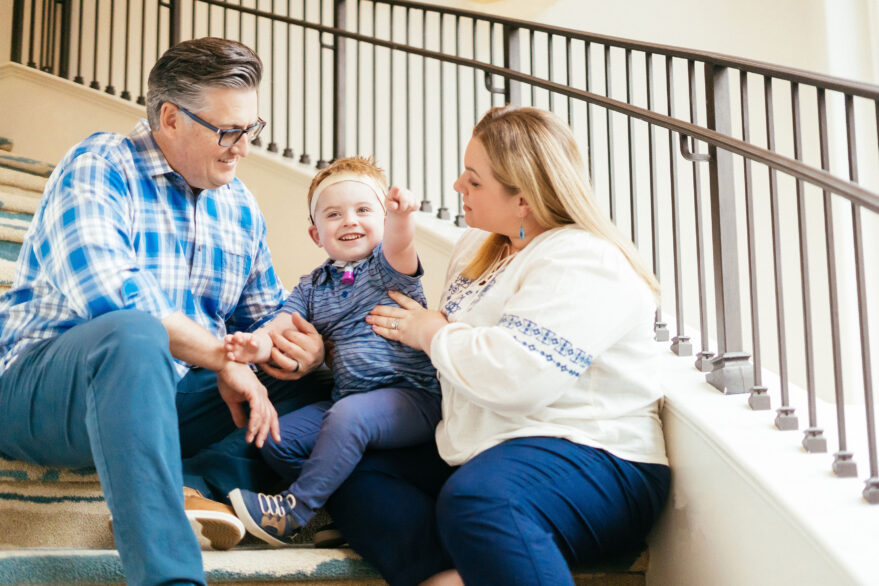One day, Hudson Wingate was a healthy 13-month-old headed for fun at daycare. The next day, he was headed for admission to Rady Children’s Hospital.
His vocal cords were suddenly paralyzed, and he could hardly breathe. He could no longer pull himself up, walk, talk or swallow. The medical team’s best assessment, based on the information they had at the time, was that Hudson had Myasthenia Gravis (MG), a disorder that affects certain muscles of the body, especially those that control the eyes, mouth, throat and limbs. However, the standard treatment for MG wasn’t helping.
Hudson was on and off a ventilator and had to be resuscitated numerous times. Eventually, he had surgery to insert a tracheostomy tube. “It was really scary, heartbreaking and frustrating,” says Hudson’s mom, Susie.
A couple of weeks later, Susie learned Rady Children’s had a Genomic Institute with genome sequencing technology to diagnose rare diseases. The family requested the testing, and, 48 hours after caregivers drew their blood for sequencing, they had a diagnosis: a rare genetic disorder called Riboflavin Transporter Deficiency (RTD). The treatment: a simple blend of nutritional supplements, available over the counter at any drugstore.
Today, Hudson is nearly four years old, and he has been working hard to conquer many challenges related to RTD including difficulty breathing, speaking and swallowing, as well as hearing loss.
Despite the challenges, Hudson is thriving. He recently started a preschool program for children who are hard of hearing. “He loves it so much,” says Susie. “He’s Mr. Social.” A huge fan of animals, music, playing outside and pretend cooking, Hudson excels at gross motor skills like riding his scooter and running. “He has great balance,” Susie says. “It’s a thrill to see him running around now after we thought he might not ever be able to walk.”
The Wingates are passionate about raising awareness of the value of early intervention and diagnosis through genomics. They’re fierce advocates because they realize the challenges that might have been avoided had Hudson been diagnosed earlier. They can picture the outcome had Hudson not eventually received an accurate diagnosis. They do it because they can’t imagine life without their son, and they know other families deserve to have access to genome sequencing early enough to make a difference.
